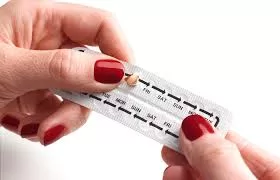Chennai, India — Women using oral contraceptives need not worry about elevated blood pressure during intense physical activity, according to a groundbreaking study led by researchers from the Indian Institute of Technology (IIT) Madras. The findings, published in the American Journal of Physiology-Regulatory, Integrative and Comparative Physiology, reveal that birth control pills do not intensify the blood pressure response during large muscle exercises such as running or cycling.
Oral contraceptives, commonly used for preventing pregnancy and managing conditions like acne, menstrual cramps, and ovarian cysts, have previously been associated with increased resting blood pressure. However, their effect on exercise-induced blood pressure changes has been unclear. This study addresses that gap, providing clarity on an issue of importance for active women.
The research team, which included collaborators from the University of Minnesota, examined young women aged 20 to 25. They observed that neither the use of oral contraceptives nor hormonal fluctuations during the menstrual cycle significantly influenced blood pressure responses during exercise. These findings held true for both lower-body exercises and scenarios involving the activation of skeletal muscle sensory neurons, which are associated with exaggerated blood pressure responses in cardiovascular disease patients.
Key Findings
Dr. Ninitha A.J., Assistant Professor at IIT Madras’s Department of Biotechnology, emphasized the importance of the study. “The findings have wide applications, shedding light on how oral contraceptives influence blood pressure response during exercise in women,” she said.
Exercise is known to temporarily elevate blood pressure as the body increases blood flow to meet muscular demands. This response, termed the “Exercise Pressor Reflex” (EPR), is influenced by factors such as sympathetic nerve activity and skeletal muscle blood flow.
Interestingly, the study explored the role of estrogens, which are cardioprotective hormones that reduce sympathetic activity and enhance blood flow to muscles. While researchers expected variations in EPR during different phases of the menstrual cycle—such as the ovulation phase when estrogen peaks—the results showed no significant differences.
“Regardless of whether the participants were in the early follicular phase, ovulation phase, or using oral contraceptives, the EPR and blood pressure responses were similar,” the researchers noted.
Implications for Cardiovascular Research
The study’s insights extend beyond immediate implications for women using contraceptives. The findings open avenues for further research into cardiovascular risks for menopausal women, who experience a natural decline in estrogen levels.
Dr. Manda Keller Ross, Assistant Professor at the University of Minnesota and a co-author of the study, highlighted this future direction. “The next step is to determine if the EPR contributes to cardiovascular risks in menopausal females,” she said.
The study underscores the importance of understanding how hormonal influences intersect with cardiovascular health, particularly for women in different life stages. With exercise being a cornerstone of a healthy lifestyle, these findings offer reassurance to women seeking to balance physical fitness with the use of oral contraceptives.












